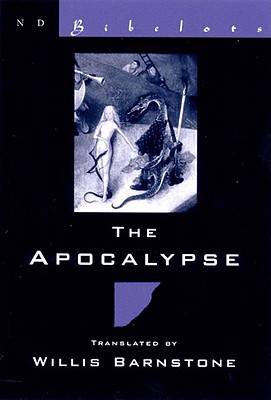
- Retrait gratuit dans votre magasin Club
- 7.000.000 titres dans notre catalogue
- Payer en toute sécurité
- Toujours un magasin près de chez vous
- Retrait gratuit dans votre magasin Club
- 7.000.0000 titres dans notre catalogue
- Payer en toute sécurité
- Toujours un magasin près de chez vous
Description
The Apocalypse (1st-2nd century, C.E.), also known as Revelations, is attributed to John of Patmos. A succession of angels reveals that God will intervene decisively in the present evil age and reward his long-suffering elect. Reflecting the Romans' oppression of Christians and Jews, and influenced by the apocalyptic writings of the Old Testament's Book of Daniel, The Apocalypse is the great epic poetic work of the New Testament. As the translator Willis Barnstone puts it, "Like the Book of Job, the Apocalypse is an extended poem, as densely poetic as Blake's Jerusalem, Whitman's Leaves of Grass, or Gerard Manley Hopkins's The Wreck of the Deutschland. It is rendered in blank verse, remarkably translated by Willis Barnstone, the distinguished scholar, translator, and poet.
Spécifications
Parties prenantes
- Auteur(s) :
- Traducteur(s):
- Editeur:
Contenu
- Nombre de pages :
- 66
- Langue:
- Anglais
- Collection :
Caractéristiques
- EAN:
- 9780811214469
- Date de parution :
- 17-10-00
- Format:
- Livre broché
- Format numérique:
- Trade paperback (VS)
- Dimensions :
- 120 mm x 174 mm
- Poids :
- 58 g

Les avis
Nous publions uniquement les avis qui respectent les conditions requises. Consultez nos conditions pour les avis.






